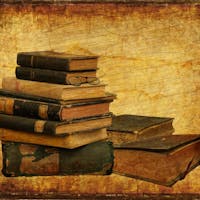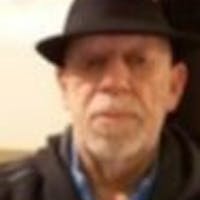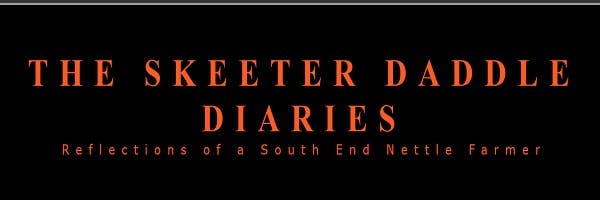Fyodor Mikhailovich Dostoevsky (1821 – 1881), sometimes transliterated as Dostoyevsky, was a Russian novelist, short story writer, essayist and journalist. He is regarded by many literary critics as one of the greatest novelists in all of world literature, as many of his works are considered highly influential masterpieces. His most acclaimed novels include Crime and Punishment, The Idiot, Demons (1872), and The Brothers Karamazov.
Public Posts
Latin proverb sometimes attributed to Virgil as "Destitutus ventis, remos adhibere." It translates as “If the wind will not serve, take to the oars.”
The proverb emphasizes self-reliance and the importance of taking action instead of waiting for conditions to improve.
Sir Alfred Joseph Hitchcock KBE (1899 – 1980) was an English film director, known as the "Master of Suspense". He is widely regarded as one of the most influential figures in the history of cinema having directed over 50 feature films over his 60 year career. Hitchcock became as well known as any of his actors thanks to his many interviews and his cameo appearances in most of his films. Although he never won the award for Best Director, despite five nominations, his films garnered 46 Academy Award nominations, including six wins.
A Greek philosophical maxim inscribed upon the Temple of Apollo in the ancient Greek precinct of Delphi. The best-known of the Delphic maxims, it has been quoted, analyzed by applied in many ways. Although traditionally attributed to the Seven Sages of Greece, or to the god Apollo himself, the inscription likely had its origin in a popular proverb. The principal meaning of the phrase in its original application was "know your limits" – either in the sense of knowing the extent of one's abilities, knowing one's place in the social scale, or knowing oneself to be mortal. In the 4th century BC, however, the maxim was drastically re-interpreted by Plato, who understood it to mean, broadly speaking, "know your soul".
Octavio Paz (1914 – 1998) was a Mexican poet, essayist and diplomat. Paz was a prolific author and poet publishing many works during his lifetime. He grew up under poor circumstances, but access to his grandfather’s library at an early age, sparked his interest in literature. He published his first poems in 1931 when still a teenager. Two years later, at the age of nineteen, he published Luna Silvestre (Wild Moon), a collection of poems. In 1997 he was awarded the Nobel Prize for Literature. The above quote, was originally written in Spanish as: "Aprender a dudar es aprender a pensar". More
Samuel Barclay Beckett (1906 – 1989) was an Irish novelist, dramatist, short story writer, theatre director, literary translator and poet. Beckett was a resident of Paris for most of his adult life and he wrote in both French and English. Beckett was a member of the French Resistance group Gloria SMH during WWII and he was awarded the Croix de Guerre. In 1961 he shared the inaugural Prix International with Jorge Luis Borges. In 1969 he was awarded the Nobel Prize in Literature.
Maya Angelou (1928-2014) American writer, poet, singer, and civil rights activist
Etel Adnan (1925 – 2021) was a Lebanese-American poet, essayist, and visual artist born in Beirut, Lebanon. The daughter of a Greek Christian mother and a Syrian Muslim father. Adnan made visual works in a variety of media, such as oil paintings, films and tapestries, which have been exhibited at galleries across the world. Adnan served as the president of RAWI: Radius of Arab-American Writers Incorporated. She lived in Sausalito and Paris.
JOHN O'DONOHUE (1956 - 2008) was an Irish poet, philosopher and scholar, a native Gaelic speaker. He wrote numerous international best-selling books including: Anam Cara, Beauty, Eternal Echoes, and Benedictus: A Book of Blessings- Published in the US as To Bless the Space Between Us. John O'Donohue Official website
Quote Source: - Excerpt from John O’Donohue's book "Beauty"
Oscar Wilde - (1854 - 1900) Irish playwright, novelist, essayist, and poet. His work included his novel, The Picture of Dorian Gray (1891), his comic masterpieces Lady Windermere’s Fan (1892) and The Importance of Being Earnest (1895). and several Plays and many Epigrams.
Quote source: De Profundis - a letter written during his imprisonment in Reading Gaol.
Gilbert Keith Chesterton (1874 –1936) was an English writer,[philosopher, Christian apologist, and literary and art critic. He has been referred to as the "prince of paradox" Chesterton created the fictional priest-detective Father Brown,] and wrote on apologetics. Even some of those who disagree with him have recognized the wide appeal of such works as Orthodoxy and The Everlasting Man. Chesterton routinely referred to himself as an "orthodox" Christian, and eventually converted to Roman Catholicism from high church Anglicanism.
The thoughts and memories,
which lay with in this aged mind,
have deteriorated to the point,
my mind, is a wasteland, too unkind,
when memories, once in your mind,
disappear for any reason,
it becomes a trying experience,
perhaps, the mind should have a season.
Unfortunately, that isn't the way it works.
A Spring for rediscovery new ideas and
recurring beauty would be great.
Unfortunately, my mind is a desert of sand.








.jpg?fit=crop&w=280&h=280&q=93)





%20r.jpg?fit=max&w=1200&h=1200&q=48)




_Oostenrijker_(kop),_Bestanddeelnr_916-2499%20-%20R.jpg?fit=max&w=1200&h=1200&q=48)



_1889,_May_23._Picture_by_W._and_D._DowneyR.jpg?fit=max&w=1200&h=1200&q=48)







.jpg?fit=crop&w=280&h=280&q=93)












